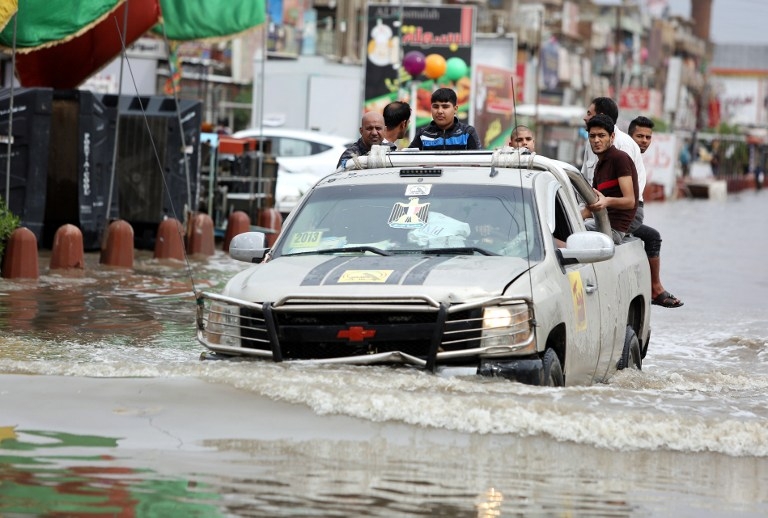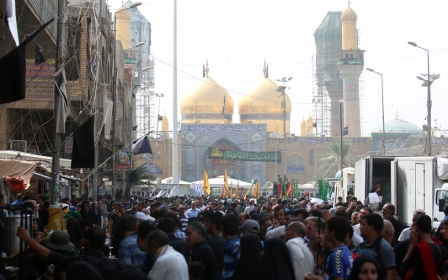Disease fears as flooding brings chaos to Baghdad

Torrential rain caused chaos across several parts of Iraq on Thursday, with the water causing thigh-high flooding on some Baghdad streets and damaging camps for the displaced.
The storm that hit Baghdad on Wednesday evening was unusually violent and the first after a long, dry summer.
The poor condition of infrastructure in Baghdad, which has an estimated population of more than eight million, resulted in spectacular flooding but residents expressed concerns that the dirty waters could spread disease.
Social media was awash with pictures and footage of the devastation, that left many people unable to reach their workplace and led the government to declare Thursday a day off and deploy security forces and police to help people navigate the floodwaters.
In one video, the staff in a Baghdad hospital could be seen wading knee-deep in water, in another cars were shown drifting away with the current on flooded streets.
Residents of some Baghdad neighbourhoods spent most of the night bailing rain mixed with sewage water from the ground floor of their homes.
"Forget the furniture, I am afraid of the diseases this can spread. Shame on our past leaders, who allowed everything in this city to rot," said Ahmed, from northwestern Baghdad.
Some of the worst flooding occurred in the northern Sadr City neighbourhood where one resident told the Associated Press news agency that residents had been forced to leave their homes.
"There is neither infrastructure nor reforms," said Muyad Ali. "They promise to do something and then do nothing. Families are fleeing from their homes because they are flooded."
A wave of protests erupted this year in Iraq over the poor quality of services, including the lack of electricity when summer temperatures topped 50C.
In areas around the capital, rivers of mud wrecked the tented camps set up for the people displaced by conflict in the western province of Anbar and other regions of Iraq.
The governor of Anbar, where much of the latest fighting between government forces and the Islamic State group has focused, urged the authorities to help.
Several camps for internally displaced people in Anbar were badly affected by the downpour and governor Suhaib al-Rawi said a bridge leading to safer provinces should be opened.
Weather forecasts predicted more thunderstorms for Friday and next week.
New MEE newsletter: Jerusalem Dispatch
Sign up to get the latest insights and analysis on Israel-Palestine, alongside Turkey Unpacked and other MEE newsletters
Middle East Eye delivers independent and unrivalled coverage and analysis of the Middle East, North Africa and beyond. To learn more about republishing this content and the associated fees, please fill out this form. More about MEE can be found here.




